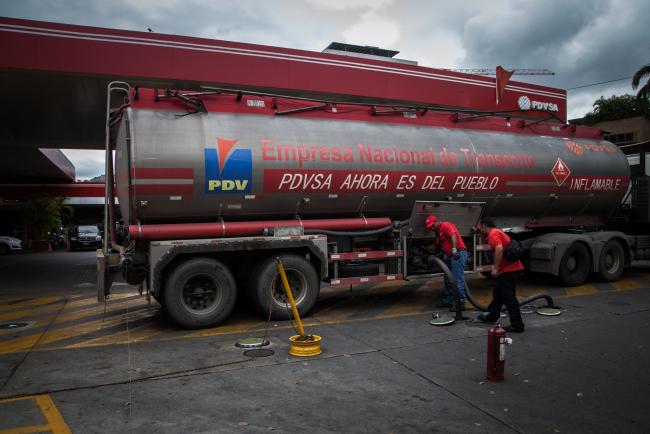(Bloomberg) -- With Venezuela’s economy in ruins, Schlumberger (NYSE:SLB) Ltd. moved at the end of last year to sell promissory notes representing $700 million in bills owed by state oil giant PDVSA, just in the nick of time to avoid sanctions that would have complicated the deal.
The world’s largest provider of oilfield services transferred the notes -- essentially IOUs -- to an unidentified buyer in the fourth quarter of 2018 after writing down their worth to about one-fifth of the face value, according to a regulatory filing. In January, the U.S. tightened sanctions on Venezuela and PDVSA that severely limited transactions in their debt.
Joao Felix, a spokesman at Schlumberger, declined to comment on the deal beyond what was in the annual filing. He said in an email Friday that the company’s operations in Venezuela are continuing as normal.
Schlumberger’s promissory notes are one of the latest examples of illiquid Venezuelan assets to switch hands as some firms seek to unwind their exposure to the South American nation. Distressed-debt investors have pounced on the beaten-down securities amid speculation an eventual restructuring will hand them a windfall. Court documents link Connecticut-based hedge fund Contrarian Capital Management to a lawsuit against PDVSA for $182 million of unpaid loans to General Electric (NYSE:GE) Capital, and Dresser-Rand Co., which makes equipment for oil and gas production, has sued PDVSA for $132.3 million, claiming it defaulted on a 2017 loan.
Schlumberger, based in Houston and Paris, is among a handful of oil firms granted licenses by the U.S. Treasury Department to continue operating in Venezuela through July 27. In 2017, when PDVSA was struggling to meet payments for suppliers, Schlumberger accepted the promissory notes with a three-year term bearing an annual interest rate of 6.5 percent.
Halliburton (NYSE:HAL) has also accepted these type of notes in the past as well as Weatherford International, according to a prospectus filed for a planned bond offering.
